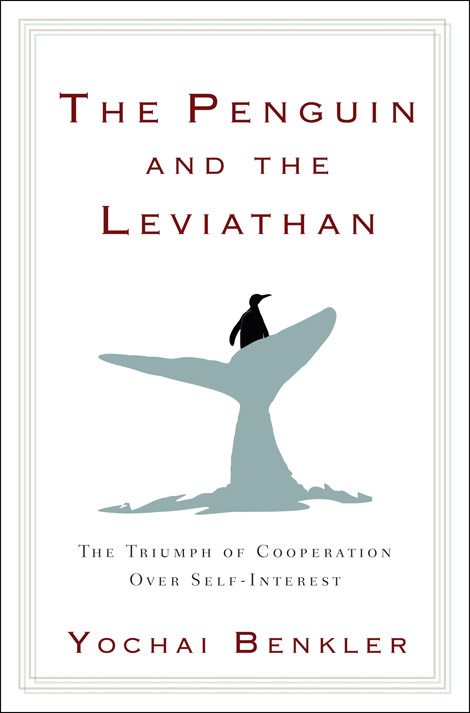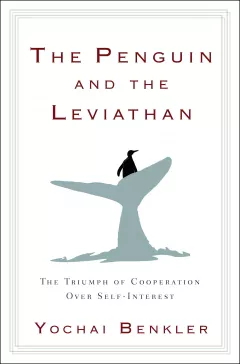
The Penguin and the Leviathan: How Cooperation Triumphs over Self-Interest
Yochai Benkler, Berkman Center Faculty Co-Director
Tuesday, October 18, 6:00 pm
Austin West Classroom, Austin Hall, Harvard Law School
Co-hosted by the Harvard Law School Library
Reception to follow
Harvard Professor Yochai Benkler (The Wealth of Networks) is one of the world’s top thinkers on cooperative structures. In his new book, The Penguin and the Leviathan: How Cooperation Triumphs over Self-Interest, he uses evidence from neuroscience, economics, sociology, biology, and real-world examples to break down the myth of self-interest and replace it with a model of cooperation in our businesses, our government, and our lives.
About Yochai
Yochai Benkler is the Berkman Professor of Entrepreneurial Legal Studies at Harvard, and faculty co-director of the Berkman Center for Internet and Society. Since the 1990s he has played a part in characterizing the role of information commons and decentralized collaboration to innovation, information production, and freedom in the networked economy and society. His work can be freely accessed at http://benkler.org.
Links
- The Penguin and the Leviathan: How Cooperation Triumphs over Self-Interest (Amazon)
- David Weinberger liveblogged the talk
- Harvard Law School coverage
(Photo via Joi)



